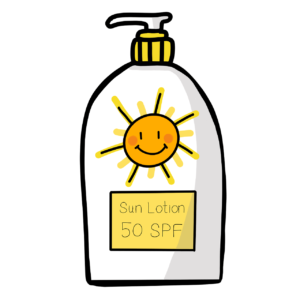Introduction
In the scorching heat of summer, protecting your skin from harmful UV rays is not just a matter of beauty but also health. Choosing the right sun protection is crucial to shield your skin from damage and maintain its youthful glow. With a myriad of options available in the market, it’s essential to understand your skin’s needs and how different products can cater to them.
Understanding Sun Protection Factors (SPF)
Sun Protection Factor (SPF) is a crucial aspect to consider when selecting a sunscreen. It indicates the level of protection a product offers against UVB rays, which are primarily responsible for causing sunburn. The higher the SPF, the greater the protection. Dermatologists often recommend using a broad-spectrum sunscreen with an SPF of at least 30 for adequate protection.
Assessing Your Skin Type
Before delving into the vast array of sunscreens available, it’s essential to assess your skin type. Different skin types have varying levels of sensitivity and tolerance to sun exposure. Here’s a quick overview:
Dry Skin
If you have dry skin, opt for sunscreens with moisturizing ingredients like hyaluronic acid or glycerin. Look for formulations labeled “hydrating” or “nourishing” to provide your skin with the moisture it needs while protecting it from the sun.
Oily or Acne-Prone Skin
For those with oily or acne-prone skin, lightweight, non-comedogenic formulas are ideal. Oil-free sunscreens with a matte finish can help prevent clogged pores and breakouts, ensuring your skin remains clear and protected.
Sensitive Skin
Individuals with sensitive skin should opt for sunscreens specifically formulated for sensitive skin types. These products are often fragrance-free and hypoallergenic, reducing the risk of irritation or allergic reactions.
Choosing the Right Formulation
Sunscreens come in various formulations, including lotions, creams, gels, sprays, and sticks. Each formulation offers unique benefits, catering to different preferences and needs.
Lotions and Creams
Lotions and creams are versatile options suitable for most skin types. They provide thorough coverage and are easy to apply, making them ideal for daily use.
Gels
Gels are lightweight and quickly absorbed, making them perfect for individuals with oily or combination skin. They offer a matte finish and are less likely to leave a greasy residue.
Sprays
Spray sunscreens are convenient for on-the-go application, especially for large areas like the body. However, it’s crucial to ensure proper coverage by spraying generously and rubbing the product in thoroughly.
Sticks
Stick sunscreens are compact and mess-free, making them ideal for targeted application on sensitive areas like the face, ears, and nose. They’re also convenient for reapplication throughout the day.
Additional Considerations
Aside from SPF, skin type, and formulation, there are other factors to consider when choosing the right sun protection:
Water Resistance
If you’ll be spending time swimming or sweating outdoors, water-resistant sunscreens are essential. These formulations adhere to the skin even when exposed to water, providing continuous protection.
Broad-Spectrum Protection
Opt for broad-spectrum sunscreens that offer protection against both UVA and UVB rays. UVA rays can penetrate deep into the skin, causing premature aging and increasing the risk of skin cancer.
Active Ingredients
Pay attention to the active ingredients in sunscreen formulations. Ingredients like titanium dioxide and zinc oxide provide physical barriers against UV rays, while chemical filters like avobenzone and octocrylene absorb and dissipate UV radiation.

Importance of Sun Protection
The significance of sun protection extends beyond cosmetic concerns. Prolonged exposure to UV radiation can lead to serious health issues, including:
Skin Cancer
UV radiation is a known carcinogen, increasing the risk of skin cancer. Melanoma, the deadliest form of skin cancer, is strongly associated with sun exposure. By wearing sunscreen daily and seeking shade during peak sun hours, you can significantly reduce your risk of developing skin cancer.
Premature Aging
Excessive sun exposure accelerates the aging process of the skin, leading to wrinkles, fine lines, and age spots. Sunscreen acts as a barrier against UV damage, preserving the skin’s youthfulness and preventing premature aging.
Sunburn
Sunburn is not only painful but also damaging to the skin. It indicates that your skin has been exposed to high levels of UV radiation, increasing the risk of long-term damage. Sunscreens with high SPF provide effective protection against sunburn, allowing you to enjoy outdoor activities without discomfort.
Tips for Effective Sun Protection
In addition to choosing the right sunscreen, here are some tips for maximizing sun protection:
Apply Generously
Don’t skimp on sunscreen. Apply a generous amount to all exposed areas of skin, including the face, neck, arms, and legs. Reapply every two hours or immediately after swimming or sweating.
Seek Shade
Avoid prolonged sun exposure, especially during peak hours between 10 a.m. and 4 p.m. Seek shade under umbrellas, trees, or awnings to reduce your UV exposure.
Wear Protective Clothing
In addition to sunscreen, protective clothing offers another layer of defense against UV radiation. Opt for lightweight, long-sleeved shirts, wide-brimmed hats, and sunglasses with UV protection.
Be Sun Smart
Practice sun safety habits year-round, not just during the summer months. UV radiation can penetrate clouds and cause damage even on cloudy days. Incorporate sun protection into your daily skincare routine for optimal results.
Final Thoughts
Choosing the right sun protection for your skin is a crucial step in maintaining its health and vitality. By understanding your skin’s needs, selecting appropriate sunscreen formulations, and adopting sun safety habits, you can enjoy the sun responsibly while minimizing the risk of sun damage and skin cancer.
